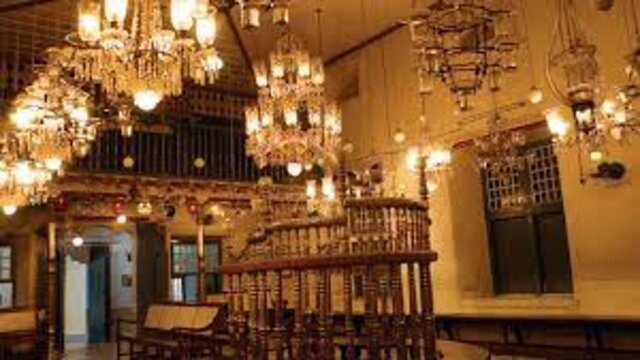A Historic Gem: Exploring the Jewish Synagogue in Kochi
Introduction: Step back in time and delve into the intriguing history of the Jewish Synagogue in Kochi, Kerala. As one of the oldest existing synagogues in India, this architectural masterpiece carries with it tales of resilience, culture, and coexistence. Join us on this virtual journey as we uncover the fascinating story of the Jewish community in Kochi and the significance of this iconic place of worship.
- A Glimpse into the Past: The Jewish Synagogue, also known as the Paradesi Synagogue, is located in the vibrant Jew Town of Kochi. Its origin dates back to 1568 when it was built by Sephardic Jews who fled the Spanish Inquisition. The synagogue stands as a testament to the thriving Jewish community that once thrived in this coastal city.
- Architectural Marvel: The Jewish Synagogue showcases a brilliant blend of traditional Kerala and Jewish architectural styles. Its elegant facade, adorned with intricately hand-painted Chinese tiles, exudes an old-world charm. Inside, the stunning brass pulpit and the ornate chandeliers further add to the grandeur of the space.
- The Marvelous Hand-Painted Tiles: One of the standout features of the synagogue is the remarkable hand-painted Chinese tiles that line its floors. Each tile narrates a unique story, featuring exquisite designs and motifs, and they have remained remarkably preserved for centuries.
- Rare Scrolls and Artifacts: The Jewish Synagogue houses a treasure trove of rare scrolls, copper plates, and ancient artifacts. Among its prized possessions is the 700-year-old copper plates that grant privileges to the Jewish community, provided by the local Hindu ruler at that time.
- Embracing Diversity: The Jewish Synagogue in Kochi serves as a poignant reminder of the city’s cultural diversity and history of coexistence. The surrounding Jew Town is a bustling marketplace where Jewish, Christian, Muslim, and Hindu communities have lived side by side for generations.
- Preserving Heritage: Though the Jewish community in Kochi is now much smaller than it once was, the synagogue remains a place of worship, cultural preservation, and historical significance. It draws visitors from around the world, keen to witness its timeless beauty and learn about the legacy of the Jewish people in India.
Conclusion: The Jewish Synagogue in Kochi is not merely a religious site but also a living testament to the rich tapestry of India’s cultural diversity. Stepping inside this historical gem, visitors can feel the echoes of centuries past and marvel at the harmonious coexistence of different faiths in this enchanting city. As we bid farewell to this iconic place of worship, let us carry with us the valuable lesson it imparts – the beauty of unity amidst diversity.


